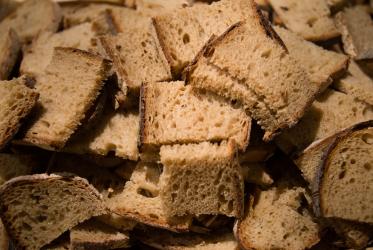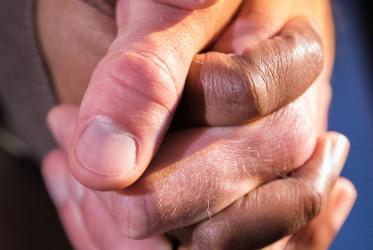Displaying 1 - 20 of 23
19 October 2023
On World Food Day, “we pray for wisdom to care for the earth”
16 October 2020
Martin Khor Kok Peng, “friend of the poor,” passes away
03 April 2020
WCC Eco-School begins in Thailand
07 November 2019
Pan African Women of Faith issue fervent Call to Action
20 November 2018
Re-engineering life forms: Church forum raises concerns
09 November 2017
Forum strengthens ecumenical commitment to diakonia
12 October 2017











